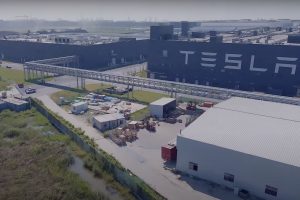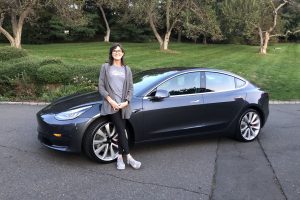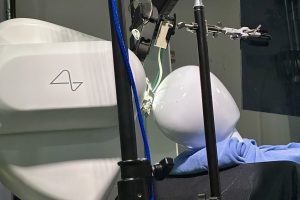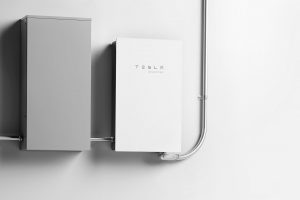Redwood Materials’ Battery Materials Campus 1 is still under construction in Northern Nevada, but it is already expected to start producing recycled battery product by the end of 2022. The recycled products will then be returned and used in one of the largest battery plants in the world — Gigafactory Nevada — which is jointly operated by Panasonic and Tesla.
Previous reports have revealed that Panasonic would be receiving recycled copper foil from Redwood Materials later this year. This effectively makes Panasonic — and by extension, Tesla — one of Redwood Materials’ first partners for its recycled battery products. Recycled copper foil, according to Redwood, could help reduce CO2 emissions by about 82% annually.
What is quite impressive about Redwood’s Battery Materials Campus 1 is the fact that it’s a closed-loop site. In a post on Twitter, Redwood noted that the complex, which seems to be partly powered by an ~8 MW solar installation, would be capable of recycling, refining, and remanufacturing battery materials.
But more importantly, Battery Materials Campus 1 has no waste streams, making it a truly closed-loop site.
Founded by Tesla co-founder and former Chief Technology Officer JB Straubel, Redwood Materials has tasked itself with the development and deployment of battery recycling technologies. Straubel is a veteran of the battery sector, and he was the mind behind some of Tesla’s most notable battery-related achievements, from cell design to the company’s now-trademark Gigafactory concept.
In previous statements, Straubel has stated that the recycling of battery components is key to achieving a closed-loop supply chain for products like electric vehicles and battery storage devices. In a closed-loop system, practically all the materials used in new battery packs are retrieved, recycled, and reused, effectively eliminating the need for mining new materials.
“Batteries are amazing because they are so recyclable. More than 90% of the critical materials in the battery could be reused many, many times without degradation. Today, the batteries that we buy and put into our products admittedly still have a pretty small recycled material content, but this is changing fast… We’re demonstrating and showing that you can make batteries that have very high percentage (of recycled materials) and still have extremely good performance and exceptional life,” Straubel previously said.
If Redwood is able to master battery recycling, it could help the electric vehicle sector become a lot more environmentally friendly. After all, the mining and production of batteries is labor intensive, and it is also responsible for a significant amount of the emissions associated with the production of electric cars. Batteries are expensive as well, accounting for about 20-30% of an EV’s overall cost.





